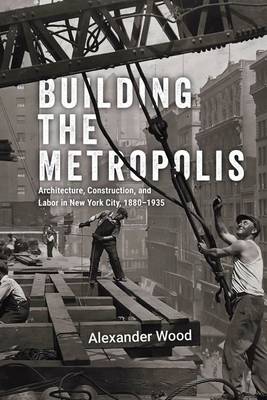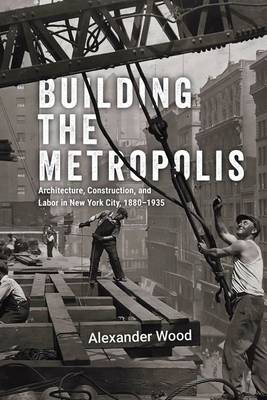
- Retrait gratuit dans votre magasin Club
- 7.000.000 titres dans notre catalogue
- Payer en toute sécurité
- Toujours un magasin près de chez vous
- Retrait gratuit dans votre magasin Club
- 7.000.0000 titres dans notre catalogue
- Payer en toute sécurité
- Toujours un magasin près de chez vous
Building the Metropolis
Architecture, Construction, and Labor in New York City, 1880-1935
Alexander Wood
48,45 €
+ 96 points
Description
A sweeping history of New York that chronicles the construction of one of the world's great cities. Between the 1880s and the 1930s, New York City experienced explosive growth as nearly a million buildings, dozens of bridges and tunnels, hundreds of miles of subway lines, and thousands of miles of streets were erected to meet the needs of an ever-swelling population. This landscape--jagged with skyscrapers, rattling with the sound of mass transit, alive with people--made the city world-famous. Building the Metropolis offers a revelatory look at this era of urban development by asking, "Who built New York, and how?" Focusing on the work of architects, builders, and construction workers, Alexander Wood chronicles the physical process of the city's rapid expansion. New York's towering buildings and busy thoroughfares aren't just stylish or structural marvels, Wood shows, but the direct result of the many colorful personalities who worked in one of the city's largest industries. This development boom drew on the resources of the whole community and required money, political will, creative vision, entrepreneurial drive, skilled workmanship, and hard physical labor. Wood shows this to be an even larger story as well. As cities became nodes in a regional, national, and global economy, the business of construction became an important motor of economic, political, and social development. While they held drastically different views on the course of urban growth, machine politicians, reformers, and radicals alike were all committed to city building on an epic scale. Drawing on resources that include city archives and the records of architecture firms, construction companies, and labor unions, Building the Metropolis tells the story of New York in a way that's epic, lively, and utterly original.
Spécifications
Parties prenantes
- Auteur(s) :
- Editeur:
Contenu
- Nombre de pages :
- 496
- Langue:
- Anglais
- Collection :
Caractéristiques
- EAN:
- 9780226836966
- Date de parution :
- 10-01-25
- Format:
- Livre relié
- Format numérique:
- Genaaid
- Dimensions :
- 162 mm x 234 mm
- Poids :
- 793 g

Les avis
Nous publions uniquement les avis qui respectent les conditions requises. Consultez nos conditions pour les avis.






